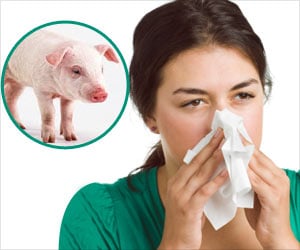The World Health Organization on Thursday vowed poor countries in the Americas would receive enough antivirals to combat the swine flu outbreak, amid fresh concern over the pandemic's spread.
The World Health Organization on Thursday vowed poor countries in the Americas would receive enough antivirals to combat the swine flu outbreak, amid fresh concern over the pandemic's spread.
During a summit in Cancun, Mexico, WHO director-general Margaret Chan said Swiss pharmaceuticals giant Roche had promised to supply 5.6 million Tamiflu treatments, which the WHO would distribute to developing countries.Chan added the WHO would hold talks with donors to buy additional antiviral reserves in order to handle demand in the coming months in anticipation of a surge in cases of A(H1N1), which has killed 332 people worldwide since emerging in Mexico in April.
Policy makers and experts from 50 countries are meeting in the Mexican beach resort to discuss their response to this year's swine flu outbreak, as Latin America continues to be hit by new cases.
The head of the Pan American Health Organization, Mirta Roses, said a US donation of 425,000 Tamiflu courses would cover immediate needs.
"The region is pretty well covered with antivirals, with equipment for diagnosis," Roses said.
The Americas have been the hardest hit by the disease, with the United States, Mexico, Canada and Argentina suffering the vast majority of the world's fatalities, according to WHO figures.
Advertisement
But Roses tried to assuage fears that the international community will be unable to deal with the outbreak if it continues to spread.
"There is absolute equality (of coverage) between the 41 countries and territories," Roses said in addressing the concerns of developing nations.
But the Cancun meeting also comes amid fears of a resurgence of the virus as the Northern Hemisphere's summer edges toward its end, and as Japan reported finding a swine flu strain that was Tamiflu resistant.
The Kyodo news agency reported the patient, a woman in Osaka prefecture, was recovering after having been given Relenza, an alternative anti-flu marketed by GlaxoSmithKline.
A spokeswoman for Swiss pharmaceuticals giant Roche, which makes Tamiflu, said the case was "absolutely normal," adding that "0.4 percent of adults develop resistance" to Tamiflu.
Source-AFP
SRM










